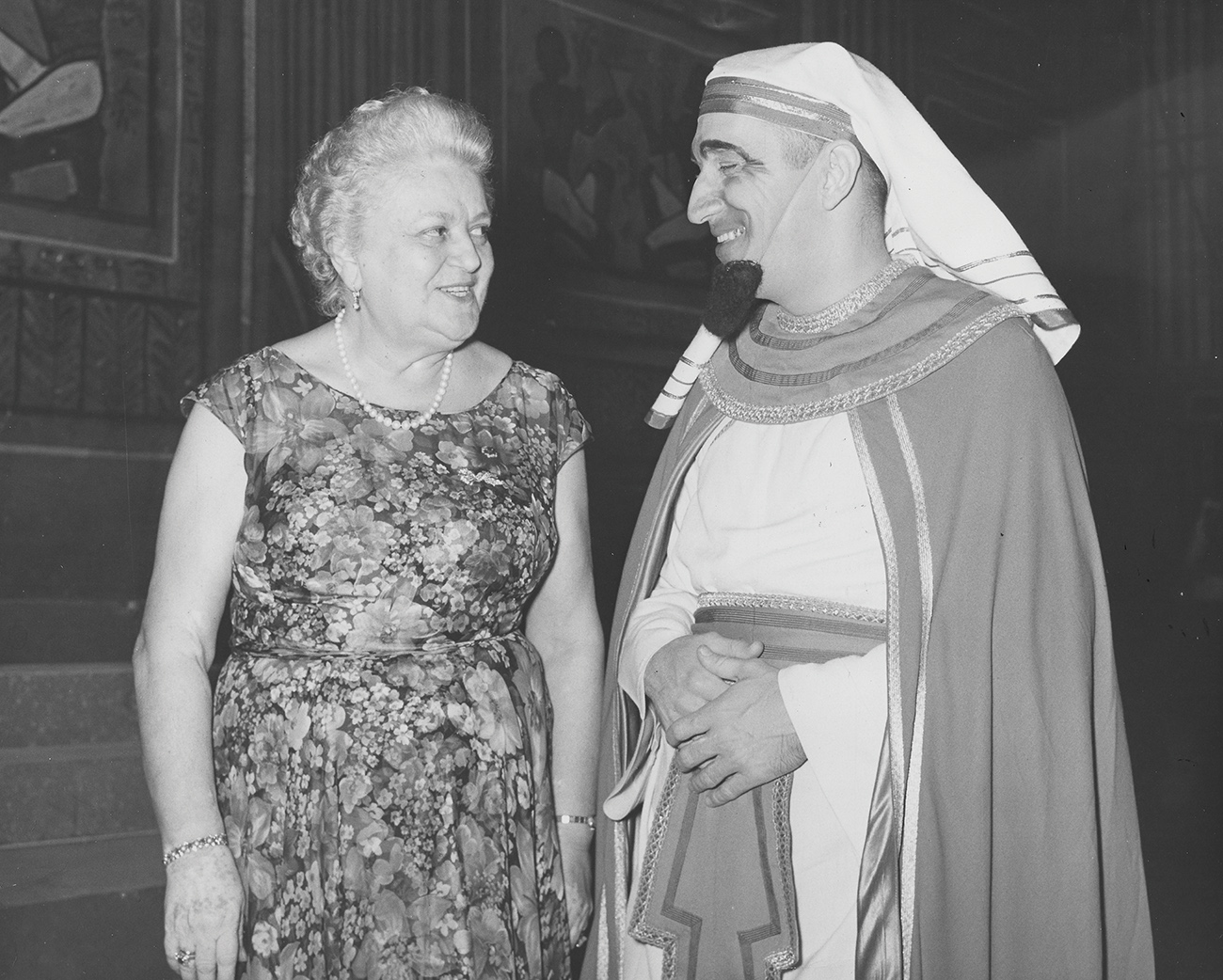
He’s always had a song in his heart, a lilt in his voice and a glimmer in his eyes. Even now, at 84, seated in his recliner and surrounded by memories and music, Forrest Wilson Jr.’s persona fills every nook and cranny of his living room. “I’ve just always enjoyed it,” he says of singing. And he didn’t limit it to the stage. Just ask his wife, Ann.
“Oh, he sings in the shower,” Ann says, smiling. “When our daughter was about 3 years old, she liked to go sit on the bath mat while he was singing. He sang the prologue to ‘Pagliacci’ so much, she could sing along in Italian!” But Wilson didn’t start out singing foreign operatic scores. He says his vocal talent was first recognized as a youngster while singing in the adult church choir’s Christmas Eve program.
“‘Get that boy some lessons,’ is what my parents were told,” he says, the lines around his eyes crinkling. And they did. After Wilson received some introductory instruction, his parents were put in touch with Madame Rose Palmai-Tenser, founder of Mobile Opera and, today, a legend of the Mobile arts scene. It was Palmai-Tenser’s mission to remove the intimidation surrounding opera as an art form and to make it available to the everyday man.
Established in 1945 as the “Mobile Opera Guild,” the city’s performing arts organization is still going strong 75 years later, making it the oldest of its kind in Alabama. That longevity and its esteemed reputation is testament to Palmai-Tenser’s vision and leadership.
“When Madame Rose found out how old I was,” Wilson says of his introduction as a 13-year-old to the Czech concert artist, “she said she didn’t take male voices that young. But she said she’d be happy to listen to me sing. After I sang, she said, ‘I’d be happy to take him.’”
Wilson began performing with the Mobile Opera Workshop, doing small productions throughout the year, then ending the season with one full-scale opera. “We only had one big show in those days,” he explains, “and it was in March. On my 15th birthday, I sang for the first time in the opera chorus.”

“The chorus is a very special thing,” explains Mobile Opera’s general and artistic director Scott Wright about the all-volunteer group whose importance is oft-unsung. Unlike the main actors who are paid, and often brought in from another city, the chorus is comprised of community members — neighbors, teachers, doctors — “regular” people sharing their love of song and performance.
For 45 years, one of those “regular” people might have been Wilson. He smiles recounting how his development in the Opera paralleled with his growth as a young man. His teenage years, he remembers, were filled with performances at the “old, old Joe Jefferson Playhouse,” back when there was only one dressing room. He laughs about the eye-opening experience of seeing, for the first time, a woman in her bra and slip in that dressing room, and even after all this time, the accidental encounter brings traces of a blush to his cheeks.
As a teenager, Wilson “aged” in other ways, too, like the time he was cast as Antonio, the gardener, in “The Marriage of Figaro.”
“I was 16 when they gave me that part,” he says. “Antonio is an older man, stooped over with a drinking problem. They put a wooden folding chair frame around my neck to make me stoop over and totter.” He and Ann laugh.
Through the years, there were many laughs on stage, some successfully restrained and others not so much. “We were doing ‘Carousel,’ and Jim Blackwell was sitting on a bale of hay waiting for the boat captain to come along; we were going to rob him. Jim says, ‘Let’s play some cards.’ But on the very last night of the show, instead of a deck of real cards, he had a deck of cards with naked women on them. It was all I could do not to tear up.” More examples of humor follow as Wilson recounts four decades’ worth of shows and behind-the-scenes pranks.

Lighthearted humor and backstage antics may not be the first things that come to mind when thinking about opera. For some, there may be a preconceived notion that the opera is only for a certain sect of people. But Mobile Opera’s sheer duration is evidence of Palmai-Tenser’s mission of making the opera accessible and haughtiness-free.
“We are fighting the idea that opera is something only for rich people,” Wright acknowledges. To that, he adds, “Just go to the opera. Go find out if you like it. Some are harder to get into, I suppose, just like novels or anything else. But it’s not opera unless somebody dies. You can’t avoid that.” How’s that for a selling point?
“Our patrons are very loyal,” says Stacey Driskell, Mobile Opera associate director and director of education and outreach. “We’re very community-based, and you’re likely to know someone on stage, in the chorus.”





